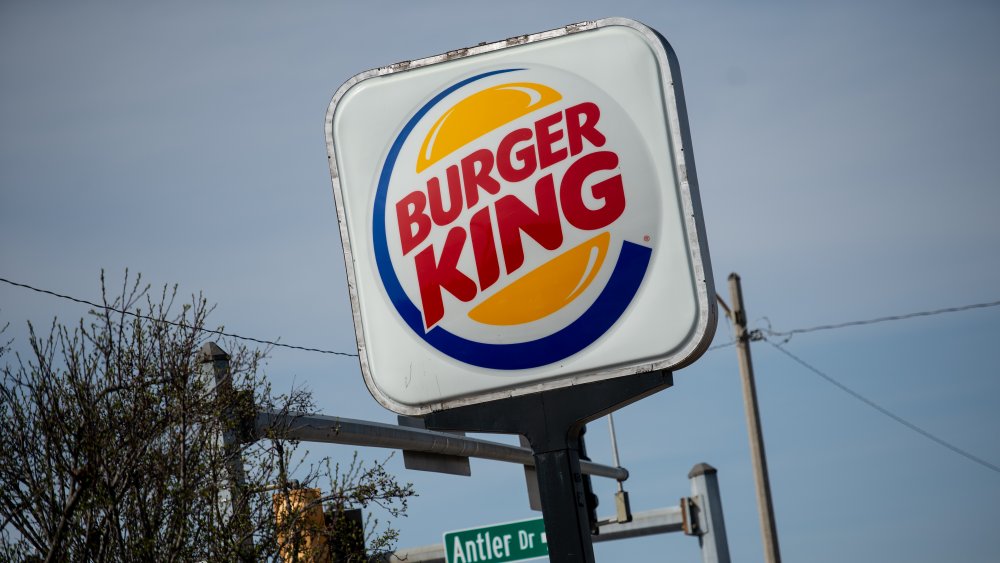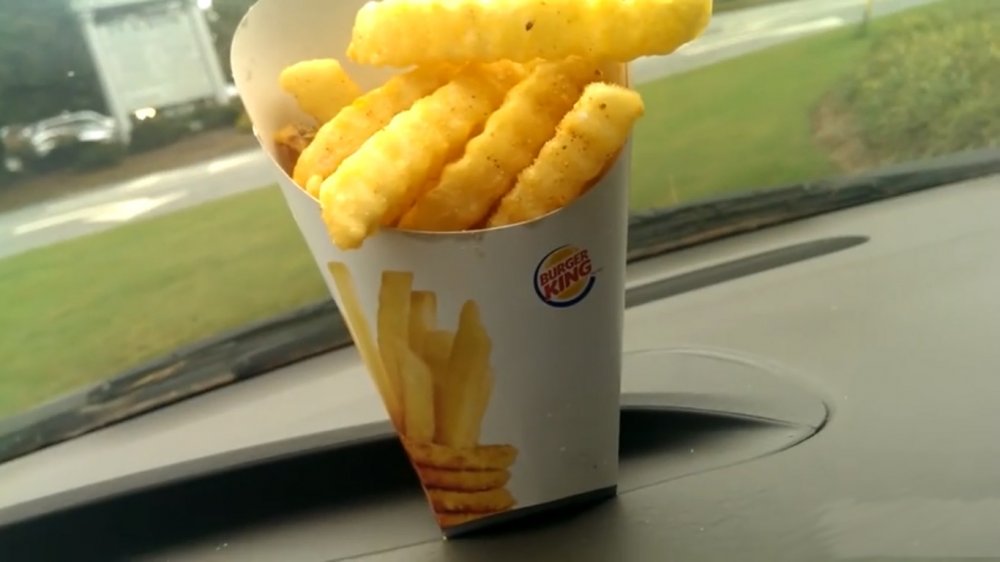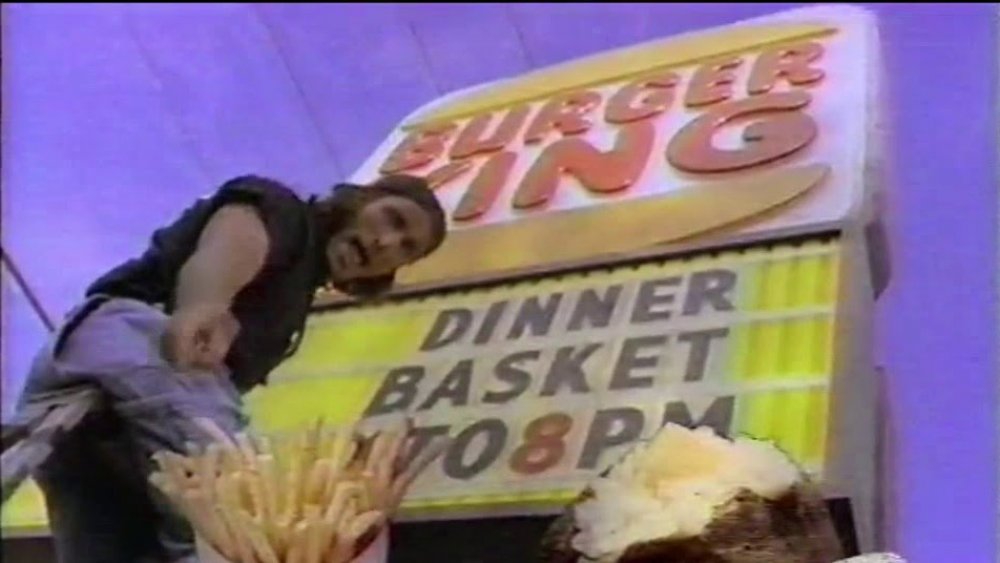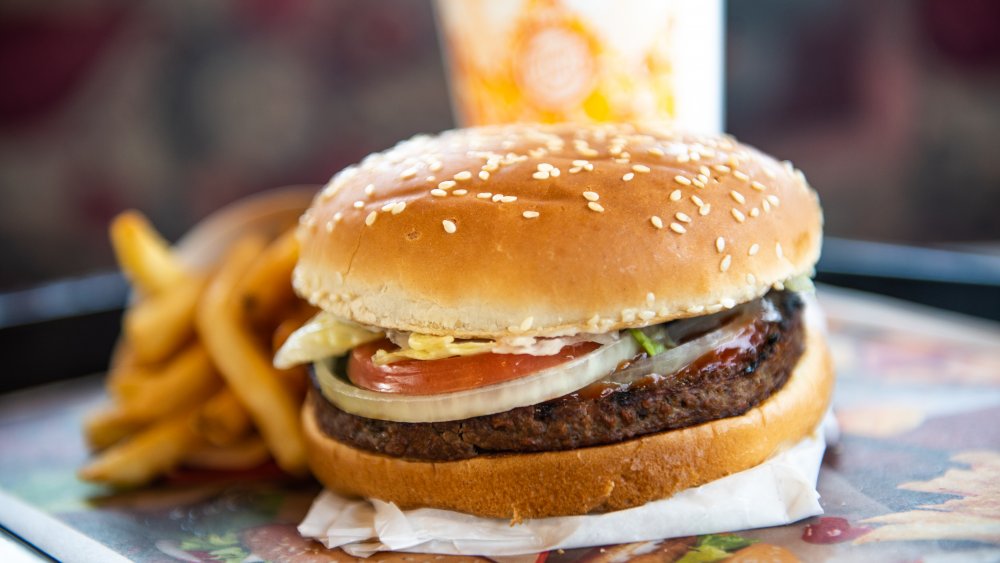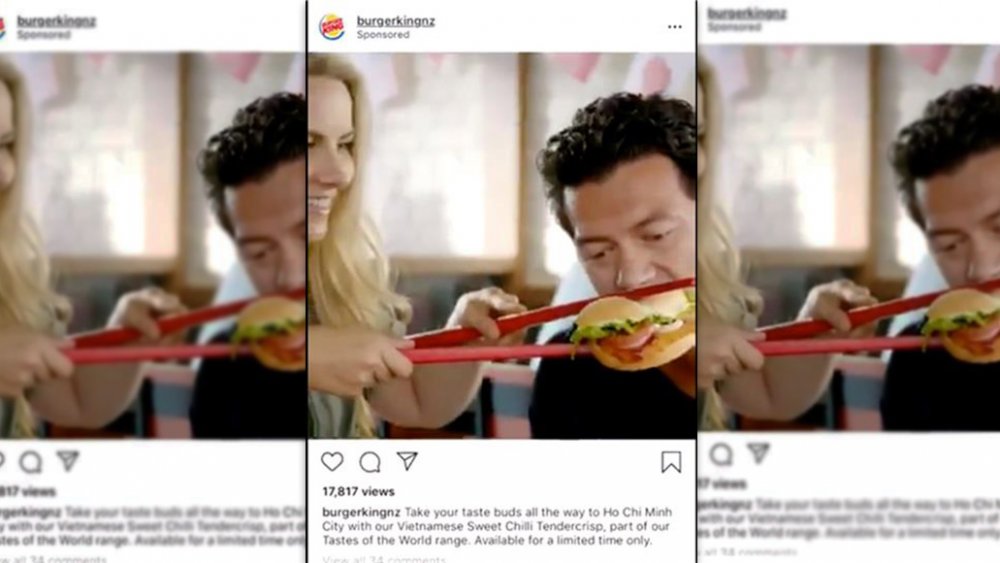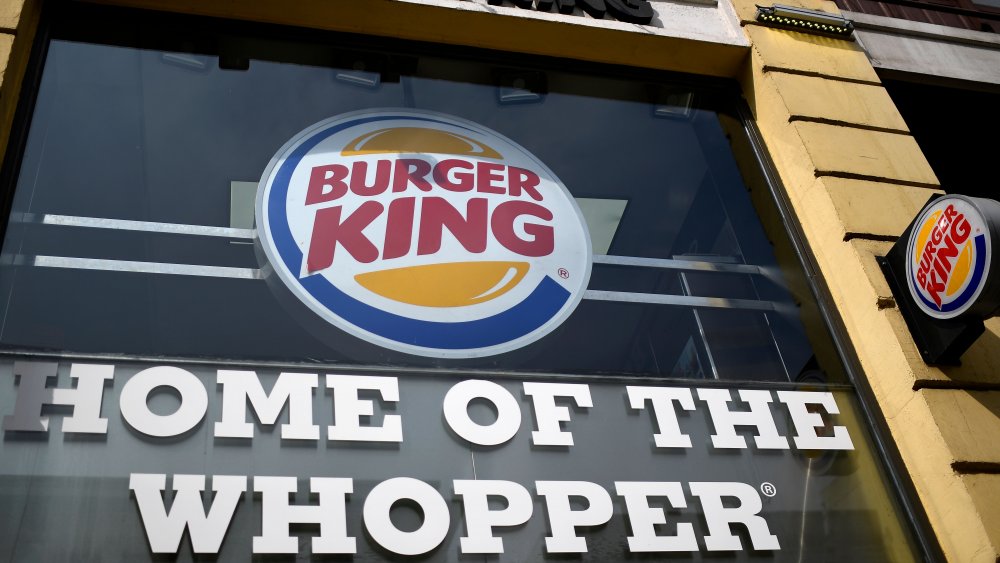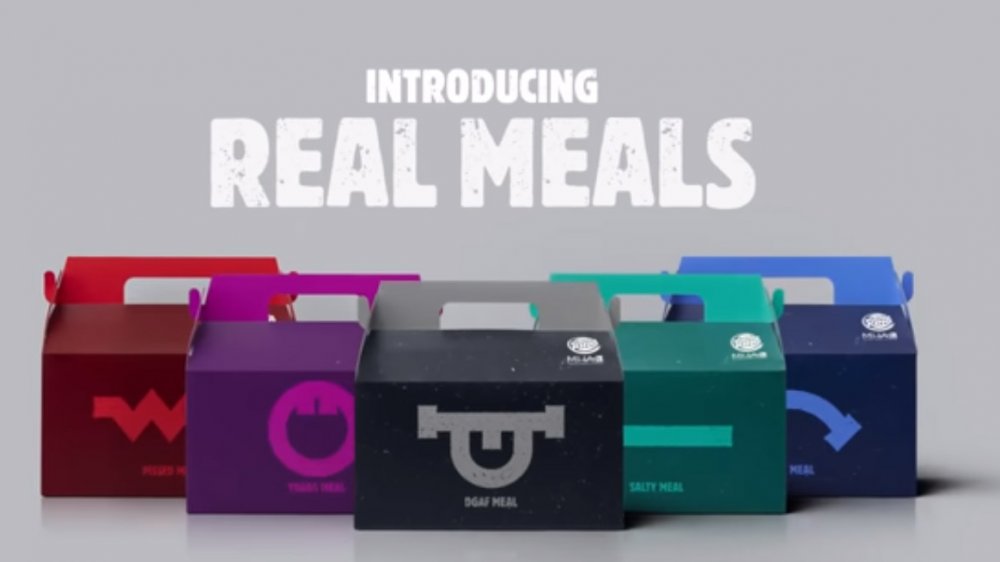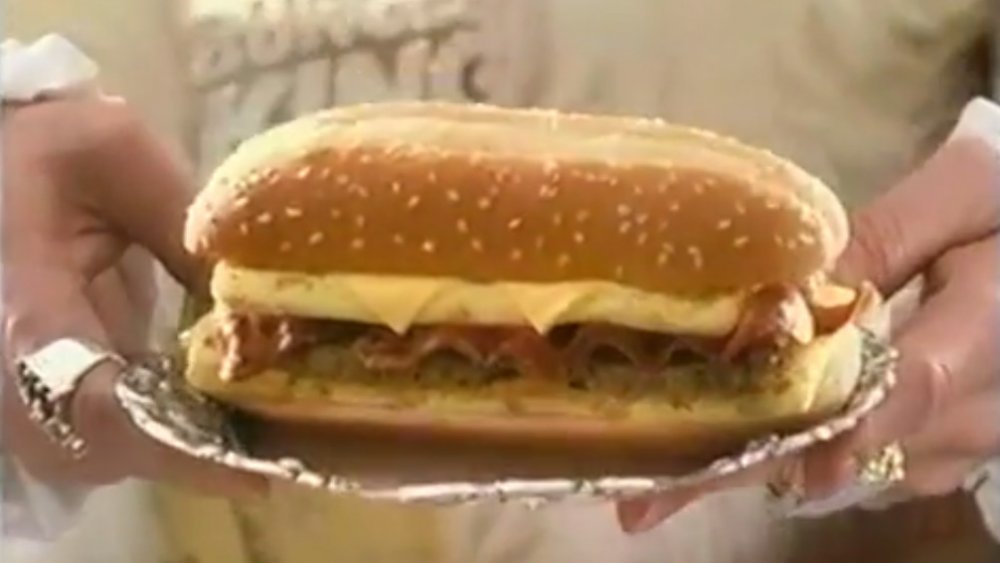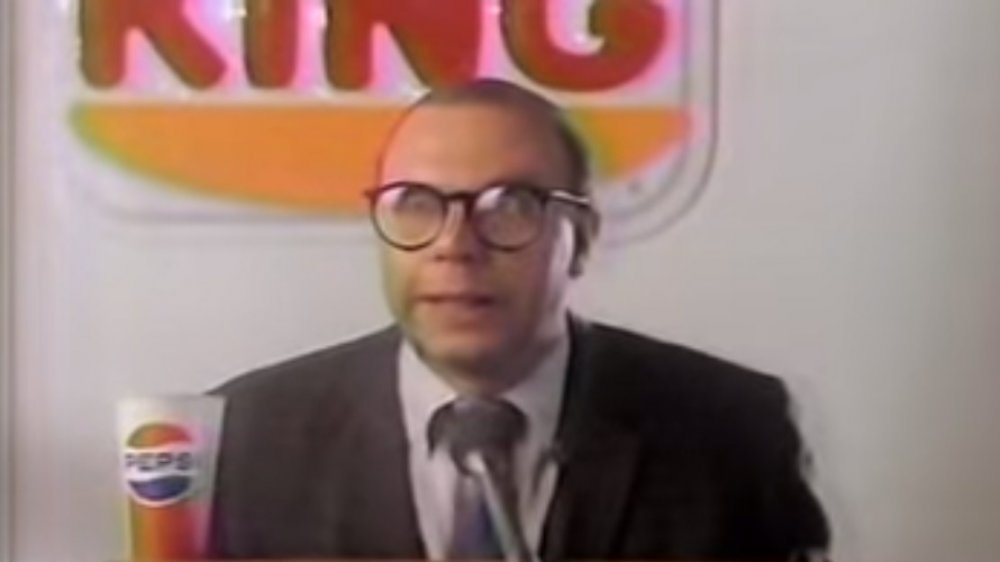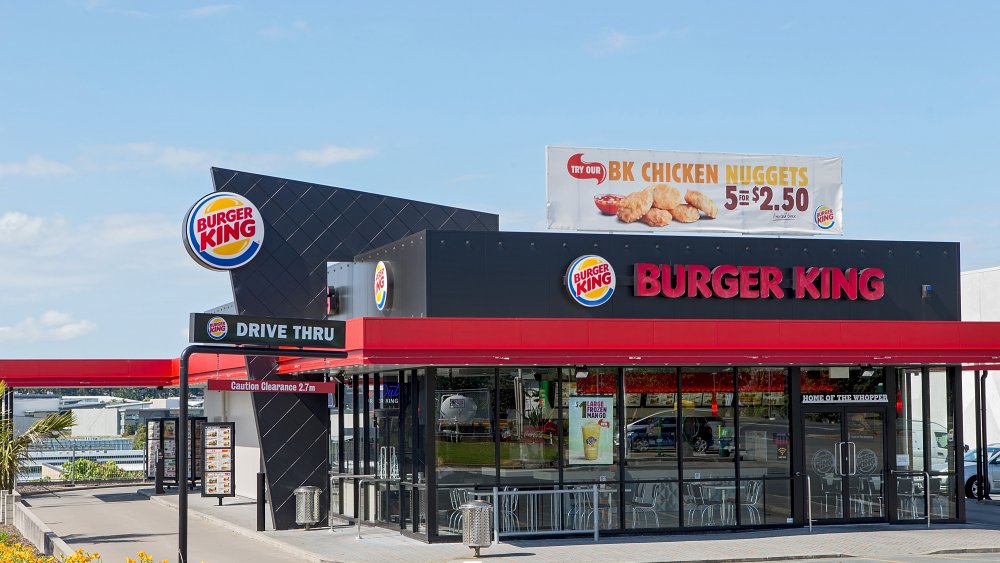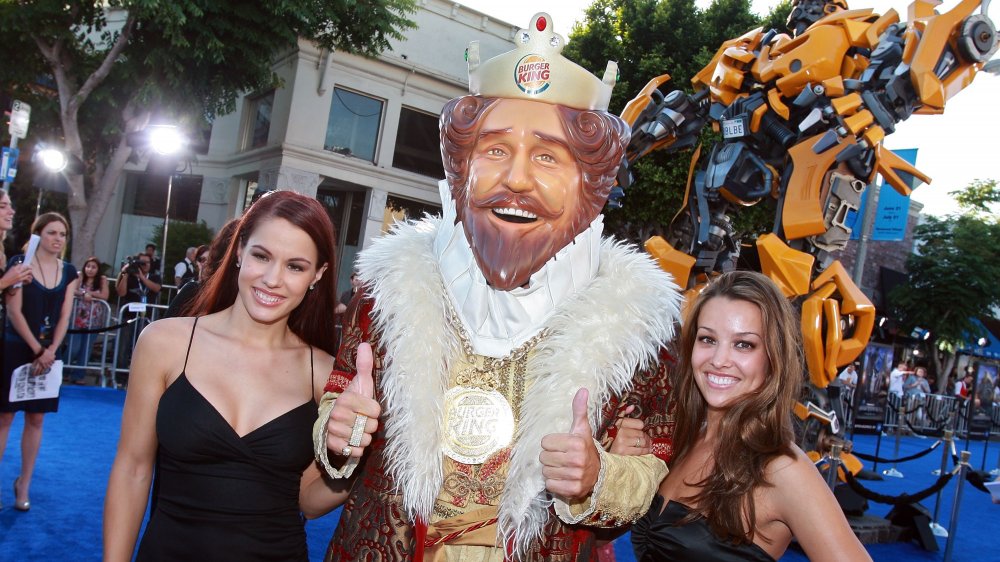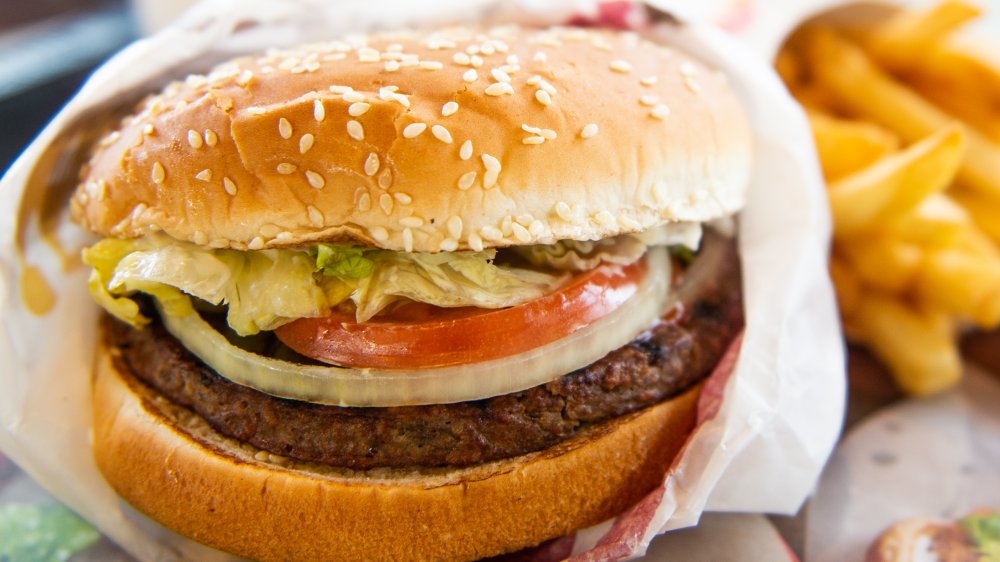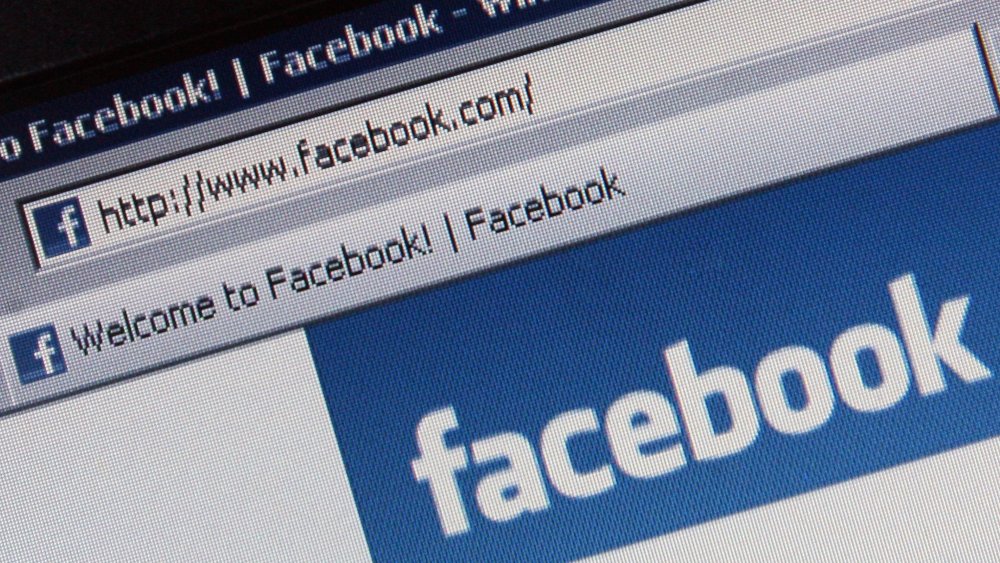The Dumbest Things That Burger King Has Ever Done
Burger King was once regularly the second or third most popular fast food burger franchise in the United States, trailing just behind McDonald's. Staying in the number two spot is almost as difficult as being number one, though, and Burger King has been slipping for years.
The fast food giant has tried to keep up with the times by updating the layouts of their restaurants, adding double drive-thru lanes, and self-order kiosks, but it may be a little too late. For every step forward that Burger King has made, it seems to have also taken two steps back — and it's been this way for years.
When it comes to making dumb decisions and launching bad ideas, Burger King takes the cake Whopper. Advertisements that were done in bad taste, bogus new menu items, poorly calculated sales campaigns... you name it and Burger King has probably done it.
To be fair, a lot of fast food restaurants have made their fair share of stupid moves, but Burger King may just have them all beat.
Burger King's Satisfries satisfied nobody
Maybe trying to reinvent the french fry isn't the smartest idea when you haven't even perfected the original version. Alas, that's exactly what Burger King attempted to do though in 2013 with the launch of "Satisfries."
Satisfries were meant to be the french fry's hipper and healthier, yet still delicious, cousin — and Burger King promised a fry that had 40 percent less fat and 30 percent fewer calories. Here's the thing, there are some foods that our collective society has just accepted as not being healthy and we're okay with that. French fries are somewhere at the top of that list between deep-fried Oreos and cheese doodles.
Burger King found out pretty quickly that Satisfries weren't satisfying many people, and the menu item got kicked to the curb in less than a year. So what went wrong?
For starters, Satisfries were more expensive than Burger King's regular fries, and the fast food chain just couldn't convince people that the fries were worth the extra cost. Burger King launched the new fries to try and compete with seemingly healthier options like Chipotle and Panera, but consumers weren't buying it.
Satisfries, or as some on social media mockingly called them "saddest fries," prove that some foods are better left as is.
Burger King's table service was a bust
The same way that people don't go to Burger King for health food, they also don't go there for table service. There's nothing wrong with a fast food joint offering some form of table service, Chick-fil-A has been doing it for years, but it can be hard to change public perception after decades of routine.
Still, back in the 1990s some big shot in the Burger King corporate offices thought that people wanted the Burger King employees to bring them not a tray, but a dinner basket... and popcorn.
″Historically when our consumers think of fast food, they think of breakfast and lunch, and we've listened to our consumers who say they really want a different dining experience at dinner,″ spokesperson Cory Zywotow told the Associated Press at the time.
Twenty bucks says nobody ever said they wanted a "different dining experience" from Burger King and Cory Zywotow was just blowing smoke.
Regardless, Burger King tapped '90s MTV personality Dan Cortese to give their table service some cool points, and some restaurants were decked out with table cloths and napkin rings.
Besides trying to convince people that they were now a classier step above the competition, they offered customers popcorn while they waited for their shrimp or steak sandwich basket. The idea didn't land, and Burger King soon went back to the way they'd always operated.
A Whopper discount cost Burger King millions
Discounts can be an economical way for a company to move a product where the rewards outweigh the losses, but when the opposite happens, it means real trouble. Burger King's largest operator, Carrols Restaurant Group, made a whopper of a mistake when in the summer of 2019, they gave out too many discounts on the Whopper (via Restuarant Business Online).
Hundreds of Burger King locations knocked a few too many cents off the burger's value menu price and the end result was a staggering $8.3 million loss. D'oh!
"It was not an accounting issue. It was not a systems issue. It was a mistake," CEO Dan Accordino confessed. "We screwed up, and it cost us a fair amount of money." Had Carrols Restaurant Group done a little bit better on the math with their Whopper Jr. and Whopper value meals, their same-store sales would have actually risen, because of the Impossible Whopper's popularity upon launch. Oh well...
Culturally insensitive ads have turned off Burger King customers
It's not all that uncommon for a large brand to put their foot in their mouth when it comes to advertising. Burger King has done this numerous times by rolling out adverts that some felt were culturally insensitive or racist.
One of the more recent examples would be an advertisement that Burger King New Zealand ran in April 2019 to promote its Vietnamese Sweet Chilli Tendercrisp Burger. The Instagram ad was dubbed as being "culturally insensitive" because it played into Asian stereotypes.
In the ad, two customers struggle to use chopsticks to eat the burger with the tagline "Take your taste buds all the way to Ho Chi Minh City."
Besides just being a really lame tagline, the commercial (which was viewed some 2.7 million times before being taken down) was criticized by some industry experts as being potentially damaging to Burger King's attempt to grow in Asia.
"When you flub something like this, you completely hurt your ability to drive any sort of interesting or positive viral dialogue, and now it becomes almost all negative," consulting expert Brent McGoldrick told Time.
This was hardly the first time Burger King came under fire for being culturally tone-deaf either. They've been accused of trying to push Western fast food on remote villagers in Romania and Thailand, and Mary J. Blige called them out for playing into African-American stereotypes with a crispy chicken commercial that she starred in.
The Penny Whopper deal backfired on Burger King
A burger for a penny is one heck of a deal that's certainly going to grab the public's attention. Unfortunately, for Burger King, they didn't take enough precaution for the room for error, and found out that offering such a good deal may not go off without a hitch.
The deal went like this, people who downloaded the Burger King mobile phone app and went to a McDonald's would be prompted to unlock the deal that offered them a Whopper for just a penny. Known as the "Whopper Detour," the customers would then be directed away from McDonald's and towards their waiting penny Whopper. Pretty sneaky of Burger King, right?
Burger King relied a little too much on their new app to seamlessly make this deal work and when a Los Angeles customer arrived to pick up his Whopper, he was told by the manager that his order couldn't be found (via The Atlanta Journal-Constitution). Customer Boyce Harvey chose another order instead, but soon found that he had bank overdraft fees because Burger King had charged him $1,093.90 pennies too many. Ouch!
It was a seriously Whopper of a whoops and didn't make the fast food giant's newly launched app look very reliable.
Burger King's Real Meals were a real downer
McDonald's Happy Meals may not make you happy if you're over the age of 10, but they also don't come off as trying too hard. Burger King made a misguided attempt at raising mental health awareness by launching their "Real Meals," with the tag line "No one is happy all the time."
While it's true that nobody is happy all the time, it's probably fair to say that nobody is looking to Burger King for mental health guidance either. The burger chain partnered with Mental Health America for the campaign and rolled out Happy Meal-esque meal boxes given names like the Blue Meal, Salty Meal, Yaaas Meal and DGAF Meal.
The campaign received very mixed results with some mental health professionals praising Burger King for trying to be relatable, but others condemning it as a shallow way to sell more burgers.
"If the general public finds out that your actions don't coincide with your messaging, then that can be potentially very damaging for a company," digital marketing professor Ari Lightman told CNBC.
Burger King's YouTube commercial for the campaign received mostly negative feedback, revealing that a large portion of the public wasn't buying into #FeelYourWay. The Real Meals might have been somewhat launched with good intentions, but they ended up being yet another real swing and a miss for Burger King.
Burger King's Enormous Omelet Sandwich was overkill
The mid-2000s were an interesting time for the fast food industry. The American obesity rate was going up, yet burger chains seemed to be in competition with each other to see who could put out the unhealthiest menu offering. Spurred by the success of Hardee's Monster Thickburgers, Burger King tried to stake its claim with an over-sized breakfast sandwich (via NBC News).
The result was the gut-busting Enormous Omelet Sandwich. The giant breakfast sandwich was loaded with a two-egg omelet, two slices of cheese, three strips of bacon, and two sausage patties. The result was a 730 calorie sandwich that packed more calories than the Whopper.
It was a pretty big meal for the first meal of the day, but one that Burger King thought their customers needed. [The sandwich] is for "our guests who want a convenient and filling breakfast," Burger King's then-chief marketing officer, Russ Klein, said.
The sandwich was immediately slammed by critics for being nothing more than a fatty sodium bomb of a breakfast meal. "Americans do not need an Enormous Omelet Sandwich," a professor of nutrition, Penny Kris-Etherton, told CNN. "That's too many calories." Super Size Me director Morgan Spurlock said Burger King should have offered an angioplasty coupon with the meal.
Reviews of the sandwich's overall taste were less than stellar, and it eventually left the menu without much fanfare.
Burger King denied a kid his $5k contest winnings
Nobody likes a cheater and that's the label that Burger King was slapped with after they refused to give a teenager his $5,000 contest winnings.
In 1985, Burger King launched its Herb campaign. The idea was that this nerdy guy named Herb, played by actor Jon Menick, was the one American who had never eaten Burger King. While some might have considered Herb a lucky and wise man, Burger King wanted Herb found and offered a cool five grand to anybody who spotted him.
The campaign was declared the "most elaborate advertising flop of the decade," but more importantly, it made Burger King look like a cheat.
Jason Hallman, a 15-year-old from Alabama spotted Herb at a Burger King, but the fast food chain denied him his prize because they said he was too young (via Time). Instead, they gave it to his 16-year-old friend David Brown. Burger King said that according to their rules, all winners had to be at least 16 because they wanted to discourage kids from hanging out at Burger King during school hours. Yeah, Burger King thought America's youth were skipping school to look for Herb (cue infinite eye-roll).
Hallman's parents complained to their state senator and Alabama lawmakers concluded that Burger King was deceitful in their advertising. "I feel what Burger King did was as bad as what the Grinch did when he stole Christmas," state senator Mac Parsons said.
Sexist adverts only made matters worse for Burger King
If Burger King's adverts were only accused of being culturally insensitive, maybe their marketing wouldn't have such a black eye, but that's just the tip of the iceberg. They've also been called out for having sexist advertisements as well. *Sigh* Oh, Burger King, when will you ever learn?
In 2009, Burger King's UK advertising department figured that they'd get more men buying the Croissan'wich if they had a website dedicated to a woman in a bikini dancing and singing in the shower (via Business Insider). Who knows how the pitch meeting actually went, but it probably involved lots of caveman grunts.
Burger King chalked up the reasoning behind the campaign, by saying that their research told them "that breakfast is a male-centric audience for Burger King; it doesn't resonate as well with women." Okay?
That same year, Burger King lowered the bar even more with an ad that ran in Singapore for their Super Seven Incher sandwich. The advert featured a woman's open mouth with the sexual innuendo-heavy tagline "It'll blow your mind away." Hehe, get it?
Burger King was understandably criticized for the sexist ad and complaints to The Advertising Standards Authority of Singapore led to it being pulled. Even worse, the model in the advertisement said she was never made aware of how her photo would be used. Sleazy much, Burger King?
The King overstayed his welcome
In terms of strange fast food mascots, the King is one creeper who hung around longer than anybody wanted him to. Decades ago, the King was an actual human who did human things like blink and speak. Sure, he may have been kinda dorky, but at least he wasn't a plastic-headed weirdo who lurked outside of bedroom windows.
The revived Burger King mascot of the early 2000s may have won some advertising awards, but his presence actually hurt the company's sales (via Forbes). Even way back in 2009, it was apparent that the King was doing more harm than good, but Burger King kept him around another two years before finally dethroning the bobble-headed bozo. For a few years anyway...
In 2015, Burger King brought the King back and somehow managed to make him even creepier than before. He was now pole dancing, sneaking into people's beds, and just being an overall creep. Perhaps in an attempt to reignite interest in the King, Burger King decided that 2018 was the year he should speak and paired up with Budweiser for the King to blurt out "Whassup!?" Yawn.
He still currently lurking about and doing things like delivering Uber Eats — whether customers want him around or not.
Burger King's nearly $200 a burger was a dud
Gimmicks can be a real hit or miss for fast food chains, and in 2008 Burger King choose to emphasize the quality of its meat in a somewhat odd way. Rather than just roll out a marketing campaign that they were upgrading the quality of their meat, they instead choose to create an overpriced burger that would only be sold one day a week, in one UK restaurant — for $190 (via Ad Age).
The burger wasn't made with beef that Burger King would be serving to the common folk, and instead was made with Wagyu beef and topped with truffles. Customers also got a commemorative bottle of Coke that Burger King claimed was worth $300. "The idea is to change perceptions by pushing the envelope to raise awareness of our ambitions," Burger King representative Mark Dowding said.
It's likely that more people won a chance to eat the burger through contests than actually paid for it. Regardless, the burger's taste was mediocre at best. "It's very dry," contest winner Ireen Esmann said. "The presentation and the service are better than the burger — the ingredients are good, but it's overrated," said another patron.
Here's the thing, while Burger King's expensive burger gimmick may have been about emphasizing quality, that dedication wasn't particularly long-lasting. Four years later, their UK restaurants were discovered to be serving burgers partially made with horse meat (via NPR). Whoops.
Burger King's Whopper Sacrifice violated Facebook's privacy standards
In 2009, Burger King rolled out its "Whopper Sacrifice" social media campaign. The idea was that if Facebook users deleted 10 of their friends with Burger King's Whopper Sacrifice application, then they'd receive a coupon for a free Whopper. Meanwhile, those deleted friends got a notice that they'd been sold out for a burger.
The social media campaign was called everything from "obnoxious" and "puerile" to "hilarious" and "brilliant." One thing is for sure though, it was an instant hit for Burger King and in a matter of days, 20,000 free Whopper coupons were earned by Facebook users.
Then Facebook pulled the plug for good. Burger King had neglected to do proper research into Facebook's operations, and their Whopper notification violated Facebook's user privacy agreements (via Cnet). Oops.
"Some people thought it was a little brutal because we did send notifications," Matt Walsh of Crispin Porter & Bogusky, the ad agency behind the concept, said. "If I defriended you, you would get a message saying that you were worth less than one-tenth of a Whopper."
